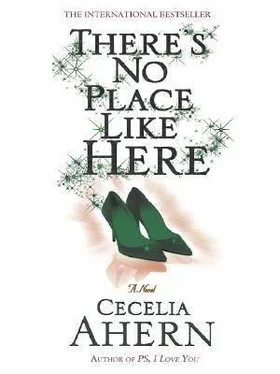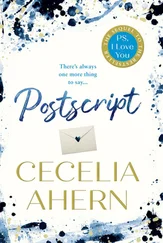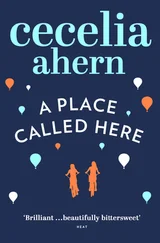They greeted each other with a hug. Alan immediately began to cry and Jack fought the urge to join him. Instead, he stiffened, allowing the younger man to weep on his shoulder, swallowing back the lump in his throat, blinking back the tears and trying to focus on everything around him that was real and that he could touch-everything except Donal.
They sat in the living room. Alan’s hands shook as he tapped ash from his cigarette into one of the empty beer cans piled alongside the couch. The room was deathly silent; Jack wished they could put on the television as a background distraction.
“I came here to see if a woman had called by today, she’s helping me out with looking for Donal.”
Alan’s face brightened. “Yeah?”
“She just wanted to ask you questions about the night, you know go back over everything again.”
“I’ve been through that a million times with the guards, and a million times every day with myself.” He inhaled deeply on his cigarette and his nicotine-stained fingers rubbed his eyes wearily.
“I know, but it’s good to have a fresh eye and ear go over everything again, maybe there’s something they missed.”
“Maybe,” he said in a small voice, but Jack doubted he believed that; he doubted there was any moment of that night that Alan hadn’t analyzed, overanalyzed, and then dissected all over again. To tell him there was maybe something he was forgetting must surely be an insult.
“She didn’t call by?”
He shook his head. “I’ve been here all day, was here all day yesterday, and I’ll be here all day tomorrow, too,” he said angrily.
“What happened to that last job of yours?”
He made a face and Jack knew not to ask any more questions.
“Do me a favor, will you?” Jack said, and handed Alan his phone. “Ring this number and make an appointment for me with Dr. Burton, I don’t want them to recognize my voice.”
Alan being Alan, he didn’t ask any questions. “Hi, I want to make an appointment with Dr. Burton,” he said, opening another beer can.
He raised his eyebrows and looked at Jack. “Yeah, for a counseling session.”
Jack nodded.
“When do I want the appointment?” He repeated the secretary’s question, looking at Jack.
“As soon as they can,” Jack whispered.
“As soon as you can,” Alan repeated. He listened and looked at Jack. “Next month?”
Jack shook his head wildly.
“No, I need it sooner than that, my head is really messed up, you never know what I might do.”
Jack rolled his eyes.
Seconds later he hung up. “You got a cancellation for noon on Thursday.”
“Thursday?” Jack asked, jumping up from his chair as though moving now would have him there on time.
“Well, you said as soon as possible,” Alan said, handing him back the phone. “Has that got anything to do with finding Donal, by any chance?”
Jack thought about it. “In a way, yeah.”
“I hope you find him, Jack.” His eyes filled up again. “I keep going back over that night again and again, wishing I’d left with him. I really thought he’d be OK getting a taxi down that way, you know?” His eyes looked tortured and his hands shook. Around his feet on the floor lay sprinkles of ash he constantly flicked with his nicotine-stained thumb.
“You weren’t to know.” Jack comforted him. “It’s not your fault.”
“I hope you find him,” Alan repeated, opening another can of beer and slugging it down.
Jack left him sitting there in the silence of the empty house, staring into space, knowing he was rethinking and reliving that night all over again, looking for the vital piece of evidence they had all missed. It was all they could do.
Missing person number one, Orla Keane, entered the great Community Hall, the light shining in from the open door spotlighting her presence. She stopped at the entrance, trying to get her bearings, looking like Alice in Wonderland who had just swallowed an “Eat Me” beside the monstrous oak door. I cleared my throat nervously and its amplified sound bounced off the walls, raced to the ceilings, and back down again like a Ping-Pong ball let loose. She turned to where I had made the noise and began to make her way toward me, high heels on the wooden floor echoing loudly.
Joan and Helena had set up a table for me to sit behind on the far side of the room and, much to Joan’s disappointment, they stepped outside to give me privacy. As Orla approached me, I felt starstruck. I couldn’t believe that this person had stepped out of my “Missing” photographs and was now a living, breathing person walking directly toward me.
“Hello,” she said with a smile, her Cork accent still strong despite her time here.
“Hello.” My voice came out as a whisper. I cleared my throat and tried again. I looked down at the list of names on the table before me. I would have to do this twelve times today, and then again with Joan and Bernard. The thought of seeing all these people thrilled me, but the idea of having to discuss such delicate topics so subtly was draining me already. I had asked Helena earlier once again why on earth it was that I couldn’t just let everybody know without having to carry out this charade.
“Sandy,” she had said so firmly that I needn’t have even heard a reason, “when people want to get home they get desperate. For them to learn that you found your way here while looking for them would cause them to believe that they can leave with you. Life wouldn’t be worth living here with a few hundred people trailing your every move.”
She had a point. So here I was, playing the role of casting agent and owner of an acting agency, about to wind a conversation about every member of their family and friends into a Hamlet soliloquy.
I had had one more question for Helena. “Do you think that I can lead the people out of here and bring them home?” I had been wondering if that was my purpose for being here, because I was convinced I wasn’t staying. The typical victim belief: This can’t happen to me, not me of all people.
She smiled sadly, and once again I needn’t have heard her response because her face said it all. “Sorry, Moses, I don’t think so.” But before I dissolved completely she quickly added, “But I think you are here for a reason and that reason is, right now, to share your stories with everyone, to tell them about their families and how much they’re missed. That’s your way of bringing them home.”
I looked up at Orla, who was sitting before me anxiously awaiting my next move. It was time to bring her home.
She was twenty-six years old now and she looked like she’d hardly changed at all. Nearly six years had passed since she had gone missing. Six years I’d spent looking for her. I knew her parents’ names were Clara and Jim and they had divorced two years ago. I knew she had two sisters, Ruth and Lorna, and a brother, James. Her best friends were Laura and Rebecca, who was also known as “Fly” because of her regular forgetfulness to zip up her fly. Orla was studying art history at Cork University when she went missing. Her debs dress was purple, and the scar across her left eyebrow was from when she’d fallen off her bike on vacation in Bantry when she was eight. She lost her virginity when she was fifteen at a house party, to Niall Kennedy, the guy who worked at the local video store, and she secretly crashed her parents’ car when they were away for a week in Spain but had it repaired on time and they still don’t know it to this day. Her favorite colour is lilac, she loves pop music, played the piano until she was fourteen, had secretly dreamed of becoming a ballet dancer since the age of six, yet never once took a class, and she had been here for five and three quarter years.
Читать дальше












